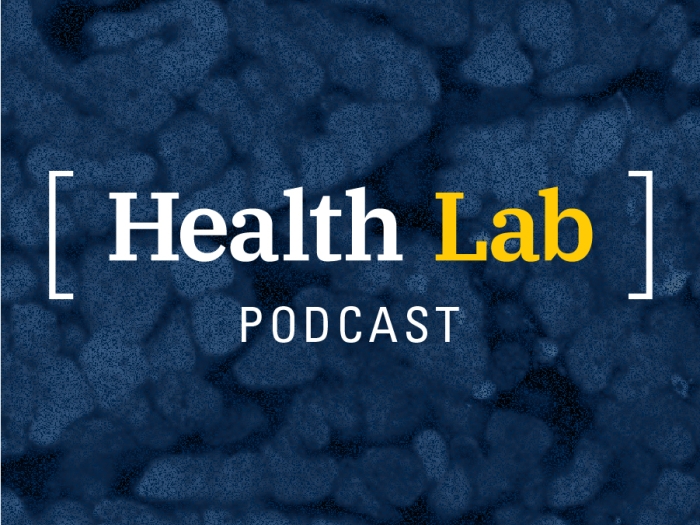Health Lab
Michigan Medicine's daily online publication featuring news and stories about the future of health care.


Health Lab
Both total glaucoma and vision-affecting glaucoma vary by demographic factors

Want top health & research news weekly? Sign up for Health Lab’s newsletters today!

Health Lab
An in-depth analysis of the percentage of adults, especially older adults, who have glaucoma and experience vision limits due to it shows higher prevalence and disparities.

Health Lab
Many organs that are ready for donation are discarded for various reasons. The Organ Procurement and Transplant Network is finding ways to combat this to increase the number of transplants done per year.

Health Lab
Apple has marketed its AirPods Pro 2 as soon having “clinical-grade Hearing Aid capability.” Devin McCaslin, Ph.D., an audiologist, answers some questions about the hearing aids market and about the new AirPods.

Health Lab
A report highlights that many teens are using protein supplements, particularly protein powders, to improve their athletic performance and build muscle.

Health Lab
Michigan teen Jake Juip becomes 100-meter Michigan state high school champion in adaptive track and field race using adaptive equipment designed to meet the needs of his rare neuromuscular condition.

Health Lab
In a study of commonly used treatments for multiple sclerosis, both medical and behavioral interventions, and a combination of the two, resulted in significant improvements in fatigue.

The Health Lab Podcast
Subscribe today on Apple Podcasts, Spotify, Stitcher or wherever you get your podcasts.

Health Lab
An in-depth analysis of the percentage of adults, especially older adults, who have glaucoma and experience vision limits due to it shows higher prevalence and disparities.

Health Lab
A report highlights that many teens are using protein supplements, particularly protein powders, to improve their athletic performance and build muscle.

Health Lab
Although previously rare in young people with diabetes, an editorial in JAMA Ophthalmology notes that diabetic retinopathy is increasing in younger patients, urging clinicians to remain vigilant of symptoms.

Health Lab
Dementia doesn’t just erode memory – it also changes behavior and mental health. A new study shows the brain’s salience network and tau protein may be involved.

Health Lab
Health care providers who counsel their patients about firearm safety and prevention could prevent future injury or death, including suicides, violent injuries and unintentional injuries resulting from firearms, according to a University of Michigan report.

Health Lab
A therapeutic developed by Michigan Medicine's Michelle Hastings, Ph.D., is now being used to treat twin girls with a rare form of juvenile Batten disease.